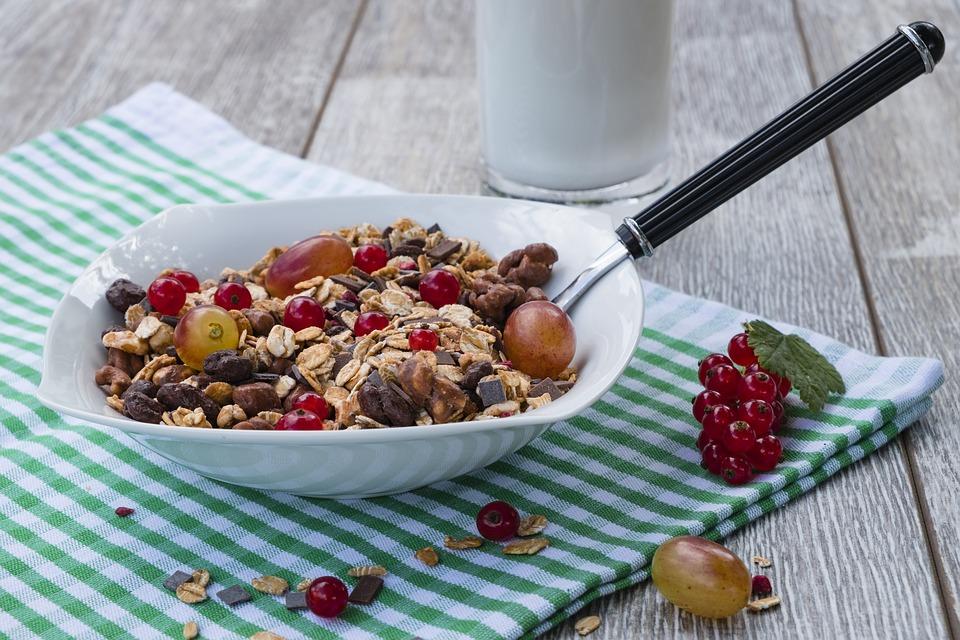This product was invented by the Swiss doctor Maximilian Oskar Bircher-Benner, who was an enthusiast of healthy raw food. He was born in 1867, studied medicine at the University of Zurich, and then opened his own clinic. During the first year of practice, the doctor himself became ill with jaundice. Not a very pleasant beginning of the history of cereals, but it was his illness that gave birth to the most beloved breakfast of millions of people.
Birсher-Benner treated himself with a diet consisting mostly of apples. He considered apples to be a very potent food that could help cope with many diseases. So he included them in his dish that originally consisted of raw fresh products: oats, apples and nuts. In 1897, the doctor opened a sanatorium called Vital Force, where he embodied his "healthy" ideas in life. And muesli were among them! Today "Bircher Muesli" stand out in a huge variety of other cereals. They are usually served with cream or condensed milk.
The recipe is the following: three tablespoons of oats are soaked in water for the night, then mixed with a tablespoon of nuts, a tablespoon of cream and a small amount of honey. A large sliced apple with skin and a core is also added. Then everything is sprinkled with lemon juice.
Birсher-Benner called his invention "d'Spys". The translation of this word from Swiss German is simply "a dish". Its modern name "muesli" comes from the word "mues" - puree.
The doctor was so confident in the benefits of his dish that it was given to the patients of the sanatorium before every meal. A strict regime was introduced at the Vital Force: patients exercised, went to bed early, abstained from coffee and chocolate, alcohol and tobacco, and took cold showers. The novelist Thomas Mann, who visited the sanatorium, called it "the prison of health". Despite the criticism, there was no shortage of patients there, and the doctor even had to expand his clinic to accommodate more people.
The recipe is the following: three tablespoons of oats are soaked in water for the night, then mixed with a tablespoon of nuts, a tablespoon of cream and a small amount of honey. A large sliced apple with skin and a core is also added. Then everything is sprinkled with lemon juice.
Birсher-Benner called his invention "d'Spys". The translation of this word from Swiss German is simply "a dish". Its modern name "muesli" comes from the word "mues" - puree.
The doctor was so confident in the benefits of his dish that it was given to the patients of the sanatorium before every meal. A strict regime was introduced at the Vital Force: patients exercised, went to bed early, abstained from coffee and chocolate, alcohol and tobacco, and took cold showers. The novelist Thomas Mann, who visited the sanatorium, called it "the prison of health". Despite the criticism, there was no shortage of patients there, and the doctor even had to expand his clinic to accommodate more people.
In the nineteen thirties the diet popularized by Bircher-Benner became very popular, although it was a little later than cereals were widely recognized as part of a healthy diet. In the 1960s they became the basis of the diet of vegetarian communities. An additional advantage was that dry mixes could be stored for several weeks and even months, they were sold in bags and boxes.
Over time, the original recipe has changed, various fruits were added to the oats. Later they were replaced with dried fruit and chocolate, and other grains were added instead of oats. And of course the toasted cousin of muesli - granola - has its origins in this dish.
Today muesli and granola are going through a new round of popularity. They are used not only by vegetarians and raw food enthusiasts, but also by ordinary people, who care about their health. Despite the fact that the recipe has changed over time, the breakfast ideas of of Dr. Bircher-Benner remain very relevant. Get your breakfast right by getting your grains and other ingredients from local farmers!
Over time, the original recipe has changed, various fruits were added to the oats. Later they were replaced with dried fruit and chocolate, and other grains were added instead of oats. And of course the toasted cousin of muesli - granola - has its origins in this dish.
Today muesli and granola are going through a new round of popularity. They are used not only by vegetarians and raw food enthusiasts, but also by ordinary people, who care about their health. Despite the fact that the recipe has changed over time, the breakfast ideas of of Dr. Bircher-Benner remain very relevant. Get your breakfast right by getting your grains and other ingredients from local farmers!







